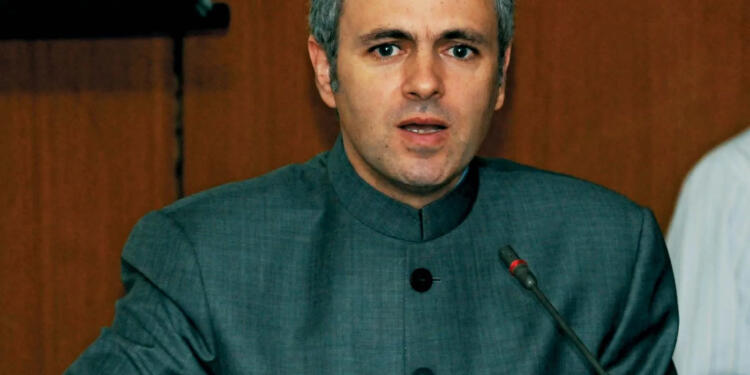2024 has been a watershed year for Jammu and Kashmir, with very significant political and security developments. In fact, the year has also seen the return of Omar Abdullah to power. There has been a breakthrough in democratic participation, but terrorism has made a worrying resurgence. Though the road ahead is very challenging both on the governance and security front, and political history of Jammu and Kashmir was rewritten in 2024.
Return of Omar Abdullah to the Chief Minister’s Chair
October 8, 2024, marked the most critical chapter in the political history of J&K when it elected its first government after the annulment of Article 370 in 2019. The National Conference’s leader, Omar Abdullah, was again elected as the Chief Minister, though on much lesser terms. The alliance secured 49 seats out of the 90 in the post-delimitation assembly, with the NC taking 42. This victory marked personal and political redemption for Abdullah because he suffered a shocking defeat in the 2019 Lok Sabha elections to Engineer Rashid, but latter won both his assembly seats.
This election 2024 assembly was not the victory for the National Conference solely but also for the Election Commission, security forces, as well as the Central Government. Following the decision by the Narendra Modi government in August 2019 to rescind J&K’s special status and bifurcate the state into a Union Territory, there had been widespread reservations about the electoral process’s fairness and safety. A repeat of the contentious elections of 1987 that had provided the spark for militancy was a stark possibility. However, the three-phase assembly election went on smoothly without any violent incidents.
Record Voter Turnout
The 2024 elections were remarkable not only for their political importance but also for the fact that the elections registered record-breaking voter turnout, a positive indicator of greater democratic engagement. In the Lok Sabha elections held in May 2024, J&K registered an all-time high voter turnout of 58.46%, which is the highest voter turnout in the state since the last 35 years. The constituency that once saw a lot of terrorism activities saw an impressive 59% turnout, a sharp jump from the 4% it had recorded in 2019. The fervor spilled over into the assembly elections, with 63.5% voting and the third phase showing a remarkable 68.72% turnout.
These numbers were especially important in areas that had experienced violence and intimidation. Areas like Kishtwar, which had experienced terrorist incidents just hours before the polls, saw voter participation rise to 80%.
Political Changes: Jamaat-e-Islami and Engineer Rashid
A remarkably new political development in the new 2024 also began within Kashmir. The Jamaat-e-Islami had abstained from contesting all elections since it did during the 1987 contest within all these elections. It went for contesting 10 seats. Most of them lost their deposits; such an election decision was understood by most as a moment for reversal in its approach. At all costs, the JeI now ventured within elections, though opposing polls was a long-cherished desire of this organization all this while.
In the year 2024, Engineer Rashid, president of the Awami Ittehad Party (AIP), was also seen in the news. The jailed Rashid since 2019 was allegedly involved in terror funding; still, he had won the seat of Omar Abdullah in the 2019 Lok Sabha elections. His party could not make it repeat in the assembly polls of 2024 as they could only get one seat out of the 36, they contested.
Terrorism returns to Jammu
While the elections were a reason to celebrate, terrorism continues to loom over the region. Through to mid-December 2024, close to 70 terrorists, including 44 foreign militants, were reported killed. However, across Jammu division in areas of Reasi, Doda, Kishtwar, and Udhampur districts, a shocking rising trend of terror activities has been reported, which were practically silent for nearly a decade.
The killing of seven pilgrims in Reasi in June indicated a return of the Pakistan-backed terrorists in the region. The security forces in turn have intensified their efforts to counter border infiltration, checking ground workers, and assessing the threats posed by drones and tunnels on the international border.
The Road Ahead for Governance and Security
As the Omar Abdullah-led government enters its term in 2025, it shall face quite a few governance challenges. Prominent among those would be improving basic services, including electricity, matters of policy reservations, and getting along politically with other parties. However, the primary concern for both the government and the security apparatus is to prevent the return of the violent disruptions—such as stone-pelting, hartals, and widespread violence—that were common before 2019.
Union Home Minister Amit Shah, in his year-end review, emphasized the importance of continued coordination between security agencies to implement a “zero-terror” policy and maintain area dominance. With heavy security presence, the government is keen on the resurfacing of previous pre-2019 violence routines.
The question of statehood remains the focal point of political discourse in Jammu and Kashmir. While the Union Government has reiterated its commitment to restoring statehood, the J&K Assembly has passed a resolution calling for its restoration. As 2025 unfolds, the key question remains: When and how will Jammu and Kashmir return to statehood, and what implications will it have on the region’s political and administrative future?




















